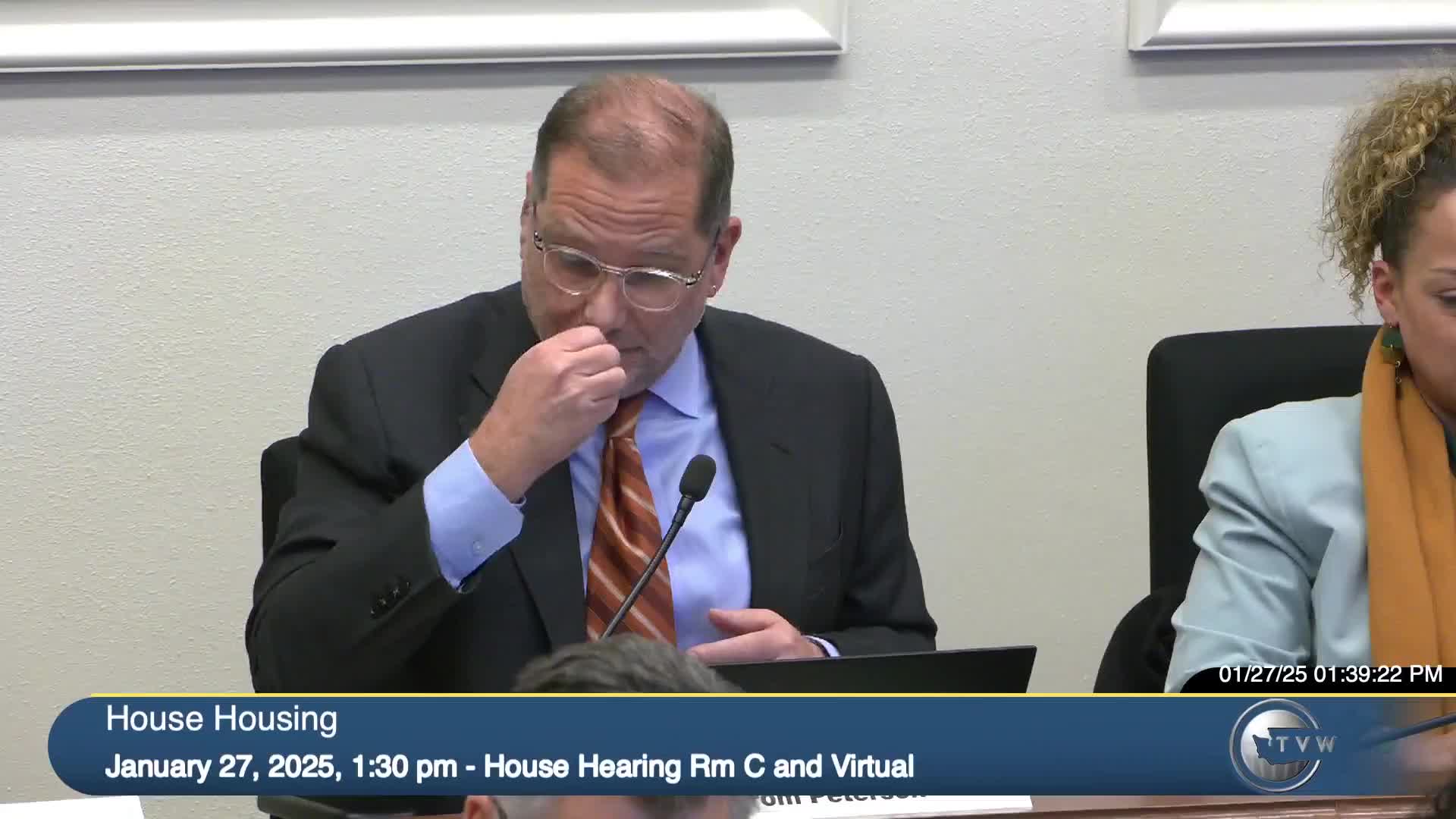Committee hears bill to allow detached ADUs outside urban growth areas with limits and reporting
Get AI-powered insights, summaries, and transcripts
Subscribe
Summary
Lawmakers and stakeholders debated House Bill 1345, which would let fully planning counties authorize detached accessory dwelling units (DADUs) outside urban growth areas if counties adopt specific siting, water/septic, enforcement and reporting rules.
House Housing Committee members on Jan. 27 heard testimony on House Bill 1345, which would allow counties that fully plan under the Growth Management Act (GMA) to permit detached accessory dwelling units (DADUs) outside urban growth areas if the counties adopt specified limits and oversight.
The bill, described to the panel by Audrey Vasek, staff to the committee, would let fully planning counties authorize DADUs outside urban growth areas subject to requirements in section 1 of the draft. "No parcel may have more than one ADU," Vasek said, and DADUs would be limited to siting within 150 feet of the principal unit and generally not exceed 1,296 square feet. Counties that adopt the authority must also require water- and septic-related conditions, provide an owner-initiated voluntary compliance pathway for unpermitted units and annually report completed permits to the Washington State Department of Commerce.
Representative Lois Lowe, the bill's prime sponsor in committee, told members the proposal is a negotiated compromise that “strikes the right balance” for rural areas by allowing small, close-in homes for seniors, students and new families while including checks that keep rural areas rural. "There's a lot of seniors who live in rural areas that would like to stay on the property that they've had in their family for 50, 60 years," she said.
Supporters including county and industry representatives said the bill fills a gap between planning requirements and tools counties now have. Paul Jewell of the Washington State Association of Counties said the bill adds enforcement provisions aimed at addressing currently unpermitted ADUs and a requirement to track and incorporate actual ADU development into comprehensive plans. "We created both of those pathways in this bill," Jewell said, adding that tracking permits would provide real data to guide planning rather than assuming maximum buildout.
Bill Clark of Washington REALTORS said the measure would reduce regulatory uncertainty. "By specifically authorizing this to occur and then regulating how they can occur ... you're addressing some of the public safety issues that we're running into with ADUs in rural parts of the state," Clark said, noting conversions of garages and barns into unpermitted living units are common and can create financing and safety problems when discovered during a sale.
Kittitas County Commissioner Laura O'Shaughnessy testified in support and emphasized water-supply protections in the draft. "House Bill 1345 will not negatively affect water supply," she said, adding that homeowners would still have to meet state and local water-supply requirements.
Opponents and cautious stakeholders urged additional technical clarifications. Bryce Aden, testifying as "other," said his organization had moved from opposition toward conditional support after interim discussions but highlighted remaining concerns about septic approval, wildfire risk at the wildland-urban interface, stormwater infiltration and potential effects on nonconforming lots. "This is a big change," Aden said, noting the policy allows development and then requires jurisdictions to account for its effects in future planning.
Committee members asked several water-related questions. Jewell said the bill is designed to require compliance with Ecology’s basin-level limits and to ensure new uses do not exceed statutory exempt-well allowances where applicable. Representative Lekanoff asked for the background material on water conversations that stakeholders provided during the interim; Jewell and Aden said they would follow up with more documentation.
The public hearing closed after the back-and-forth of proponents and stakeholders; no formal committee vote on HB 1345 was recorded in the transcript excerpt.
Though supporters described the bill as negotiated, several witnesses asked the committee to clarify details before a final fiscal or rule-making decision. Committee members sought more written materials from stakeholders on water basins, septic and lot-coverage questions.
For now, HB 1345 remains at the committee hearing stage; staff and stakeholders said they are continuing technical conversations ahead of any executive action.
